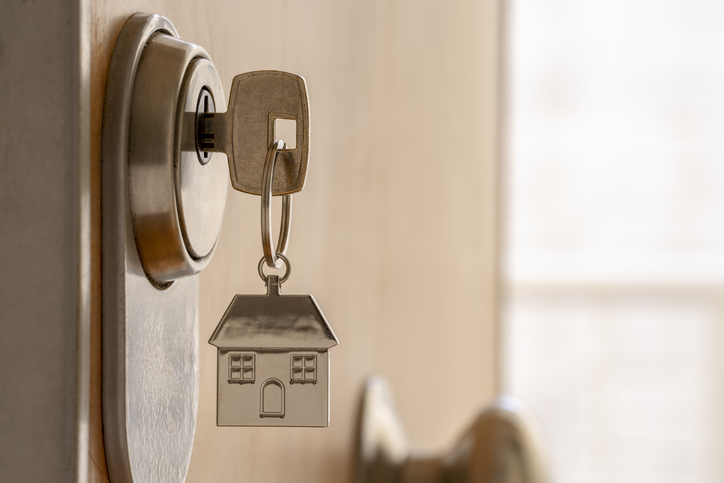Leasehold Enfranchisement – Is change finally on the horizon?
Was the King’s Speech the key to reform that leaseholders were hoping for?
On 7 November 2023, King Charles III gave his first official “King’s Speech”. The speech set out a range of planned legislative changes. It was rumoured that the speech would address both lease extensions and enfranchisement. Although the rumours were true and the speech set out legislative proposals in relation to leasehold reform, did the speech go as far as leaseholder were hoping it would?
The reform of the leasehold system has been discussed for many years, but change itself has not been forthcoming. Leaseholders, landlords and practitioners alike were tuning-in with bated breath as to the proposed reform of the leasehold system. The King announced:
“My Ministers will bring forward a bill to reform the housing market by making it cheaper and easier for leaseholders to purchase their freehold”.
Although the focus of the King’s Speech was on the purchase of freeholds, the accompanying Briefing Note went into further detail as to what reforms were on the agenda for this parliamentary session. The Government’s reforms are not limited to a leaseholder’s ability to purchase their freehold and do include reforms in relation to lease extensions. It has been confirmed that the proposed reform will be formally set out in a bill entitled Leasehold and Freehold Bill. At the time of writing, the draft bill has not been published. Nevertheless, there are three main aims of the Bill, which are as follows:
- Existing leaseholders will be empowered, as it will be cheaper and easier for them to extend their lease or buy their freehold. To do this, the following reforms have been proposed:
- The increase of the standard additional term that can be claimed in accordance with the statutory process from 90 years to 990 years.
- The removal of the two-year ownership requirement for leaseholders who wish to extend their lease or buy the freehold under the statutory process.
- Leaseholders in mixed use buildings, where the commercial premises are up to 50% of the floor space, will be permitted to buy their freehold or take over the management of the building. Currently, this is set at up to 25% of the floor space being commercial, so many more leaseholders in mixed use buildings would be entitled to purchase their freehold or manage their building.
- Leaseholders’ consumer rights will be improved. The following reforms have been proposed:
- A maximum time and fee for the provision of management information by the freeholder when a leaseholder is selling their property will be set.
- Service charges will be made more transparent.
- Building insurance commissions will be replaced by a transparent administration fee.
- Redress schemes will be expanded and the presumption that leaseholders must pay for the freeholder’s legal costs when challenging poor practice will be removed.
- Freehold homeowners on private and mixed-tenure estates will be granted the same rights of redress as leasehold tenants in relation to estate charges.
- Freeholders and developers will be unable to escape their liabilities to fund building remediation work under the Building Safety Act 2022.
- The leasehold market will be reformed by banning the creation of new leasehold houses in England and Wales, other than in exceptional circumstances.
In addition to the above, the Government has announced a consultation on the capping of ground rents in existing leases. The Leasehold Reform (Ground Rent) Act 2022 made some headway in tackling leasehold ground rents by limiting the ground rent that can be charged on most long residential leases that were granted after 30 June 2022. There have been calls, however, for the ground rents of all existing leases to be reduced to nil or capped. The options that the Government have asked for feedback on include:
- Capping ground rent at a peppercorn.
- Capping ground rent at a maximum value (for example £250).
- Capping ground rent at a percentage of the property value (for example 0.1%).
- Capping ground rent at the original rent that was agreed in the lease when it was granted.
- Freezing ground rent at its current rate.
The consultation is open until 21 December 2023. If you have an interest in this area, please do make a submission.
Although the above proposals will be music to leaseholders’ ears, there are a lot of finer details that will need to be ironed out before any legislation is enacted, and parliamentary time may run out in 2024 in a pre-election period. Considering that some of the proposals have been the subject of discussions since 2019, real reform could still be some time off despite the intention to get the bill passed by the end of 2024.
A draft bill has now been produced by the Government which sets out a long list of amendments to enfranchisement and lease extension legislation. Some of the most prominent changes are:
- The removal of the qualifying period before enfranchisement and extension claims. It will no longer be a requirement to have owned your leasehold for 2 years in order to extend and/or purchase the freehold.
- The removal of restrictions on repeated enfranchisement and extension claims.
- Longer lease extensions of 990 years.
- The general presumption that costs of lease extension and enfranchisement claims cannot be claimed from leaseholders.
- A new right to a variation of a long lease so that a peppercorn rent is payable.
- Detailed amendments in relation to how service charges can be demanded, accounted and challenged.
The draft bill provides some much-needed detail, however it is subject to change as it goes through Parliament. There are still some questions that are outstanding:
- How will valuation change, to enable tenants to pay less for a lease extension? Will landlords still be adequately compensated?
- With the potential reduction in ground rents, how will intermediate landlords be affected?
- When will the proposals be implemented? Will there be a gradual implementation, or will the bill be enacted to achieve all of the aims at once? Can it be achieved during this parliamentary session?
- Will the make-up of mixed-use buildings now change considering the new 50% commercial floorspace proposal? Landlords may now try to include larger commercial spaces in their buildings to prevent an enfranchisement claim.
- Is there more to come? There was no mention of the abolishment of marriage values or the limiting of recoverable statutory costs. Both have been widely discussed previously in conjunction with leasehold reform.
- Whether flat owners will be able to afford to buy the freehold reversion of a building with up to 50% commercial space let at market rents (with a multiplier of say 14 x the rent applied) is another matter. Very few purchases go through on this basis now, even at the present lower percentages.
The above is just a flavour of the questions that are being asked. There are a number of unknown and as yet unconsidered ramifications as a result of the reforms.
Should you have any questions in relation to lease extensions and/or enfranchisement, please contact the Property Litigation team.

